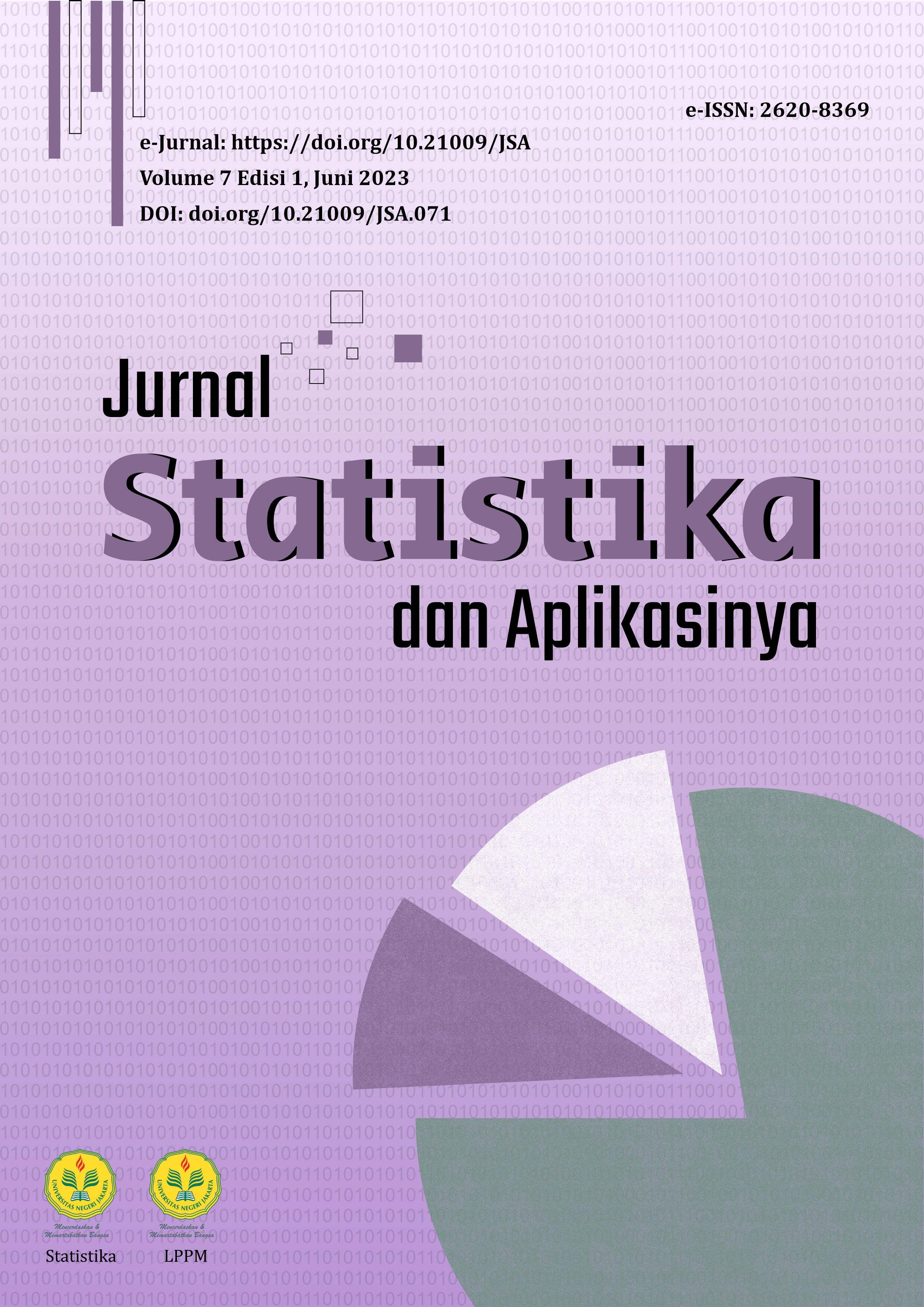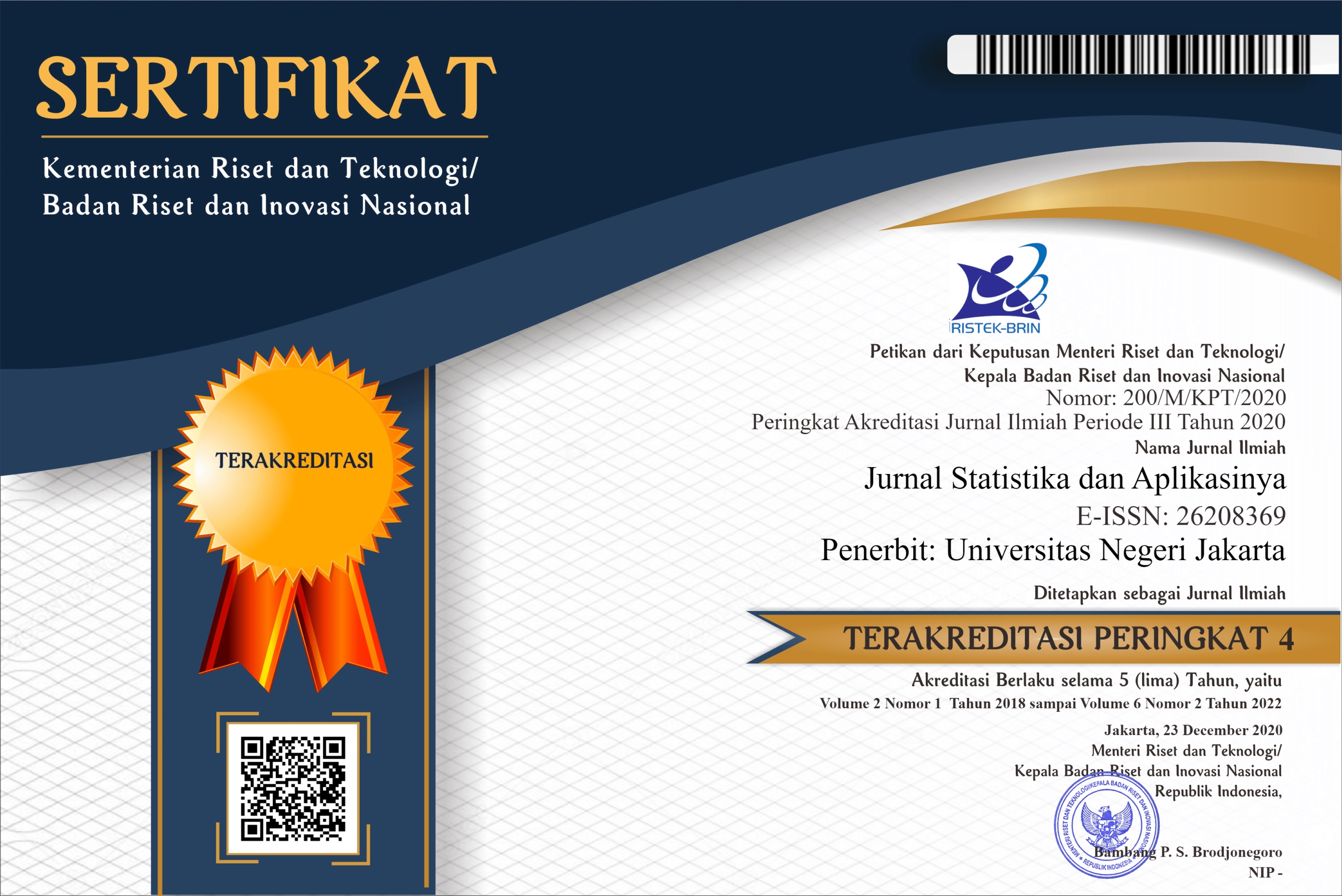Proporsi Perempuan yang Bekerja pada Posisi Manajerial di Indonesia Tahun 2015-2021: Pendekatan Feasible Generalized Least Square
DOI:
https://doi.org/10.21009/JSA.07106Keywords:
women working, managerial positions, panel data regressionAbstract
The fifth goal of the SDGs is to achieve gender equality and empower women. One indicator of women's empowerment is to give women the opportunity to be in managerial positions. The proportion of women working in managerial positions tends to increase from year to year but still lagging behind and there are gaps compared to men. This study aims to determine the effect of the percentage of women with the highest diploma who had a minimum of Diploma IV, female AHH, female LFPR, the number of women who attended training, and the percentage of women working with married status on the proportion of women working in managerial positions in Indonesia 2015-2021. The data used is secondary data obtained from the Central Statistics Agency. The method used is the fixed effect panel data regression method with the Feasible Generalized Least Square estimation method. The results of this study indicate that the percentage of women with the highest diploma who had a minimum of Diploma IV, female AHH, and the percentage of women working with married status have a significant effect, while female LFPR and the number of women who attended training did not significantly affect the proportion of women working in managerial positions.






